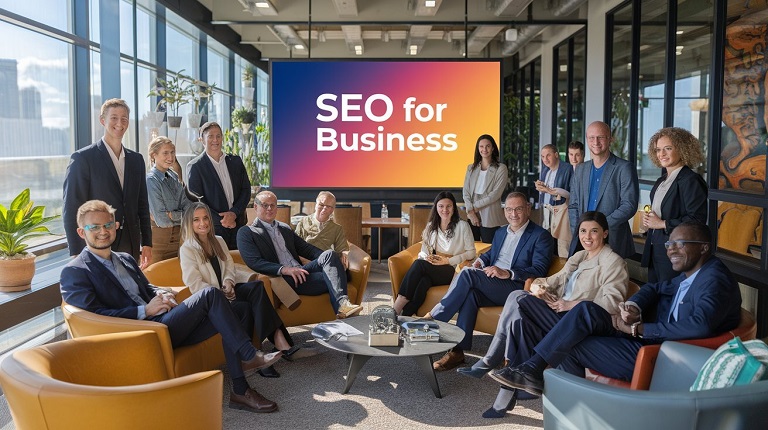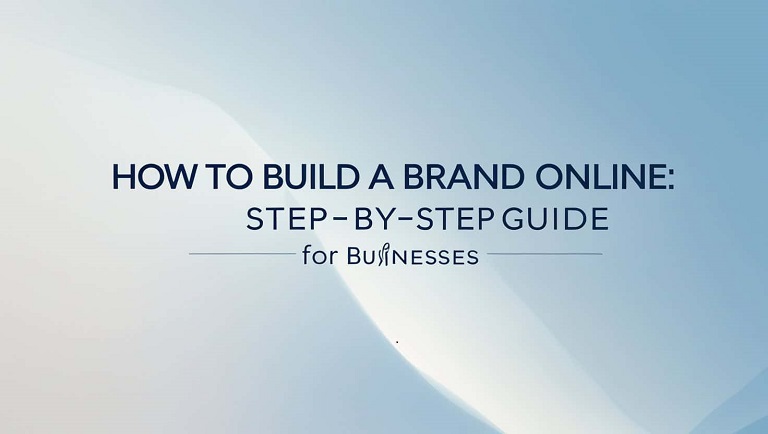Benefits of SEO for Businesses

Unlock the growth, visibility, and success you’ve always wanted for your business—all with one powerful tool: SEO. Ever wonder why some businesses seem to crush it on Google while others barely get noticed? The secret is Search Engine Optimization (SEO). It’s not just some techy term—it’s the backbone of any solid digital marketing plan.
Here’s the deal: in today’s digital world, having a strong online presence isn’t just nice to have—it’s a must. And SEO is your golden ticket to making that happen. Whether you’re running a small shop, launching a startup, or growing an established business, understanding SEO can totally change the game. It’s all about attracting the right customers, building trust, and using it to leverage it to grow your business. Ready to see how it works? Let’s dive in!
SEO for Businesses
SEO refers to the process of optimizing your website to rank higher on search engines like Google. Unlike paid advertising, SEO focuses on organic (non-paid) traffic, making it a cost-effective way to attract potential customers. An SEO expert can help streamline this process by identifying the right strategies, optimizing content, and ensuring your site meets search engine guidelines—maximizing your visibility without the need for paid ads.
- Key Characteristics of SEO:
- Organic Reach: Connect with audiences who are actively searching for your products or services.
- Cost-Effective: More affordable than paid advertising methods. For example, ranking organically for a keyword can cost significantly less than running a Google Ads campaign.
- Long-Term Results: SEO efforts can continue to drive traffic long after the initial work is done.
Example: A local bakery can optimize its website for keywords like “best coffee shops near me” to attract local customers searching for coffee online. By using location-based targeting, the bakery can ensure its website appears in local search results.
Why does your Business need SEO?
SEO is essential for businesses of all sizes. Here’s why:
- Increased Website Traffic:
- SEO helps your website rank higher on search engines, driving more organic traffic.
- Example: A software company could use keywords like “best project management tools” in their blog posts and product pages.
- Improved User Experience:
- SEO involves optimizing your website’s speed, mobile-friendliness, and navigation, providing a better user experience.
- Example: Use tools like Google PageSpeed Insights to identify and fix speed issues.
- Cost-Effective Marketing:
- SEO is more affordable than paid advertising methods, offering a higher return on investment.
- Example: A small business might spend 500−1,000 per month on SEO, compared to thousands on paid ads.
- Hiring an SEO expert is a big step for your business. Here are a few essential things to consider before you take the plunge.
- Build Brand Credibility and Trust:
- Ranking higher on search engines builds trust and credibility with your audience.
- Example: A tech company could issue a press release about a new product launch and share it on its website and social media.
- Higher ROI:
- SEO campaigns often deliver a higher return on investment compared to traditional methods.
- Example: A well-optimized website can start driving traffic within weeks.
- Stay Ahead of the Competition:
- SEO helps you stay ahead of competitors by ranking higher on search engines.
- Example: A fitness coach could post workout videos on Instagram and use hashtags like #HomeWorkouts to reach a wider audience.
- Local SEO for Local Business Growth:
- Local SEO helps businesses target customers in their area, driving more foot traffic and sales.
- Example: A local gym used Instagram ads to increase membership sign-ups by 50% in 3 months.
- Measurable Results:
- SEO provides measurable results, allowing you to track performance and make data-driven decisions.
- Example: Use tools like Google Analytics to measure website traffic and conversions.
- Long-Term Benefits:
- SEO efforts can continue to drive traffic long after the initial work is done.
- Example: A well-optimized website can rank for years, providing a steady stream of organic traffic.
What is Local SEO? and Why Does Local SEO Matter?
Local SEO involves optimizing your website to rank higher in local search results. This is especially important for businesses that serve a specific geographic area.
- Key Benefits of Local SEO:
- Increased Visibility: Local SEO helps your business appear in local search results, driving more foot traffic and sales.
- Targeted Traffic: Local SEO targets customers in your area, ensuring your website appears in relevant search results.
- Improved User Experience: Local SEO involves optimizing your website’s speed, mobile-friendliness, and navigation, providing a better user experience.
Example: A local bakery can optimize their website for keywords like “best coffee shops near me” to attract local customers searching for coffee online. By using location-based targeting, the bakery can ensure its website appears in local search results.
SEO vs. Paid Ads: Which is Better for Your Business?
While both SEO and paid ads have their benefits, SEO is often the better choice for businesses looking for long-term growth.
- Key Differences:
- Cost: SEO is more affordable than paid advertising methods, offering a higher return on investment.
- Long-Term Results: SEO efforts can continue to drive traffic long after the initial work is done.
- Measurability: SEO provides measurable results, allowing you to track performance and make data-driven decisions.
Lessons Learned from SEO Failures: What Businesses Can’t Avoid
While SEO offers numerous benefits, it also comes with its own set of challenges:
- Keyword Stuffing:
- Avoid overloading your content with keywords, as this can lead to penalties from search engines.
- Tip: Use keywords naturally and focus on creating high-quality content.
- Ignoring Mobile Optimization:
- With over 60% of web traffic coming from mobile devices, ignoring mobile optimization can hurt your rankings.
- Tip: Use responsive design to ensure your website looks great on all devices.
- Neglecting Technical SEO:
- Technical issues like slow page speed and broken links can negatively impact your rankings.
- Tip: Regularly audit your website to identify and fix technical issues.
Conclusion
SEO is a game-changer for businesses, offering unparalleled reach, targeting, and measurability compared to traditional methods. Whether you’re a small business owner or an aspiring entrepreneur, understanding SEO can help you grow your brand and connect with your audience like never before. Ready to take the first step? Start by defining your goals and exploring one or two SEO strategies. Share your thoughts or questions in the comments below—we’d love to hear from you!
FAQs
What is the best SEO strategy for small businesses?
Start with on-page SEO and content marketing. They are cost-effective and offer high ROI for small businesses. For example, a local bakery could use Instagram to showcase its products and attract nearby customers.
Is SEO better than paid advertising for my business?
SEO can be more cost-effective than paid advertising because it helps you get organic traffic without having to pay for each click. While paid ads can give you immediate results, SEO builds long-term, sustainable traffic, leading to consistent growth over time.
Can SEO improve my sales of leads?
Absolutely! SEO helps you target potential customers who are actively searching for what you offer. By appearing in front of the right audience with relevant content, you increase the chances of converting visitors into paying customers or leads.
How does SEO help my business stay competitive?
SEO helps you stay visible in search engine results, making sure your business stays ahead of competitors. If your competitors are investing in SEO and you’re not, they could be attracting potential customers who would otherwise find your business.
Does SEO help me target specific customers?
Yes, SEO allows you to target specific customer groups by optimizing your website with the right keywords. This ensures that your business appears in front of the people who are most likely to be interested in your products or services.
How long does it take to see results from SEO?
SEO can take 3-6 months to show results, depending on the competitiveness of your industry and the quality of your efforts. For example, a well-optimized website can start driving traffic within weeks.
Free SEO Audit
Are you looking to improve your website’s search engine performance but don’t know where to start? I offer a free 5-minute SEO audit to give you a quick snapshot of how your site is performing.


